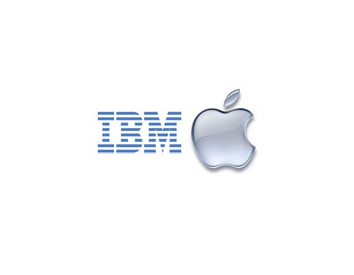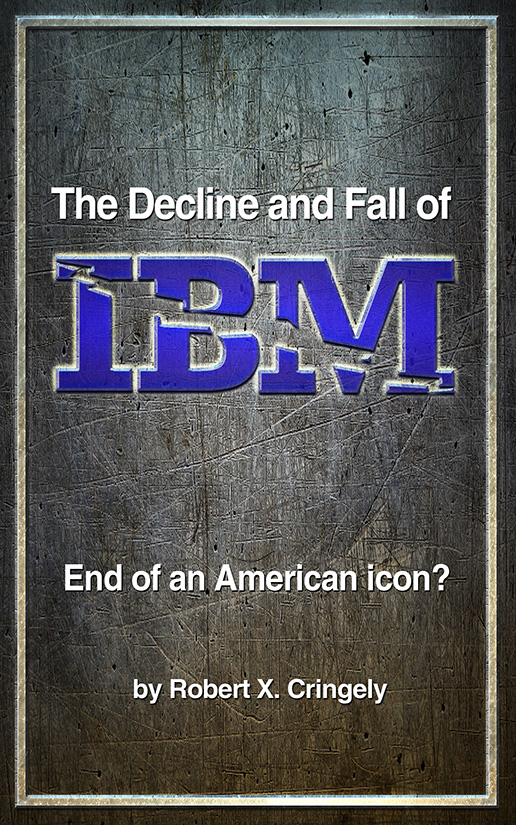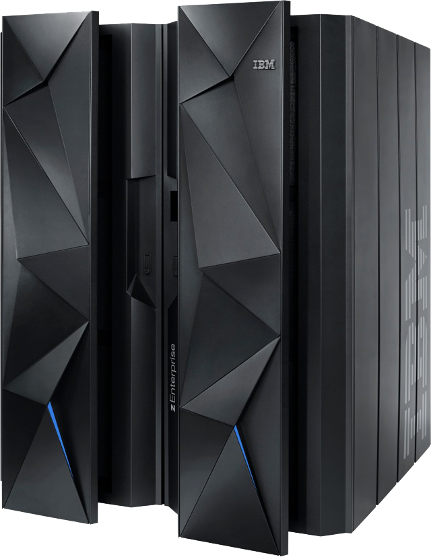
The Fed suckered IBM into a failing cloud strategy?
Economist David Stockman, who is probably best known for being President Reagan’s budget director back in the era of voodoo economics, has been particularly outspoken about IBM as a poster child for bad policy on the part of the US Federal Reserve. How this would be isn’t immediately obvious but I think is worth exploring because IBM is far from the only company so afflicted. There’s an important effect here to be understood about corporate motivations and their consequences.
So I’ll begin with a story. Almost 40 years ago there was a study I worked on at Stanford’s Institute for Communication Research having to do with helping farmers in Kentucky be more successful by giving them access to useful government data. The study was sponsored by the United States Department of Agriculture (USDA) and it gave portable computer terminals to farmers along with access to databases at the USDA, National Oceanic and Atmospheric Administration, Department of Commerce, etc. The idea was that with this extra knowledge farmers would be able to better decide what crops to plant, when to plant them, when to harvest them, etc.

IBM and Apple -- Just not that big a deal
Given that I used to work for Apple and have lately been quite critical of IBM, readers are wondering what I think of Tuesday’s announcement of an iOS partnership of sorts between Apple and IBM. I think it makes good sense for both companies but isn’t a slam dunk for either.
There are three aspects to this deal -- hardware, apps, and cloud services. For Apple the deal presents primarily a new distribution channel for iPhones and iPads. Apple can always use new channels, especially if they hold inventory and support customers who aren’t price-sensitive. Apple’s primary goal is to simply get more devices inside Big Business and this is a good way to do that.

Apple and IBM form unholy union -- Tim Cook shows weakness
For years, Steve Jobs fought the good fight against IBM and IBM compatibles. Heck, Apple was the anti-IBM. Sure, the fruit-logo company was out to make money, but not at any cost -- products and perception mattered. To many Apple enthusiasts, IBM was looked at as a dinosaur. Ultimately, IBM failed as a personal computer company, but thrives today offering services. The once mighty ThinkPad line is now property of the Chinese, by way of Lenovo. Apple stands strong in America.
Boy oh boy, Jobs must be spinning in his grave. Today, Apple and IBM join forces to strengthen iOS for the enterprise. Make no mistake, this is not Apple throwing IBM a bone. No, IBM is the stronger enterprise brand lending legitimacy to the iPhone and iPad for business. Big Blue is hired muscle for Apple.

IBM set to open new SoftLayer data center in London
IBM is opening a new SoftLayer data center in London next month that will be able provide space for over 15,000 physical servers and is part of a $1.2 billion global investment program.
The new data center is the latest of 15 that are being implemented to support the growth in cloud services in Europe and the rest of the world.

IBM back in the USSR?
My book, The Decline and Fall of IBM, is now available in paperback, on the iPad and Nook, as well as on the Kindle. A dozen other platforms plus an audio book will be available shortly, but these are the big ones.
Over the weekend I received a very insightful message about the book from reader Steve Jenkins in Australia, where IBM is showing the same behavior problems as everywhere else. Steve has an insight into Big Blue that I wish I had thought to include in the book because I believe he is absolutely correct.

Analyzing IBM analytics
When people last week started reading my IBM eBook (available Friday in paperback from Amazon and most distributors -- make Mrs. Cringely happy and send one to all your friends) the tales of IBM customer and employee woe were generally accepted as simple fact but some people had a hard time with my assertion that IBM analytics will probably not be successful (I said IBM is already too late to that party).
One especially informed reader hit me pretty hard on the topic and I think our conversation is worth repeating here. He’s asked to remain anonymous but I assure you he’s in a position to know.

The Decline and Fall of IBM
Well my IBM eBook is finally available. Right now that’s just on Amazon.com for the Kindle (just click the link to the right) but by next week it will be on every eBook platform (iPad, Nook, etc.) and there will be a trade paperback as well as an audio edition. I’ll announce all of those here as they appear.
I feel I owe an explanation for the long delay in publishing this book. I finished it in early January, about a week after my mother died, only to learn that my old-school book publisher didn’t want to touch it. Or more properly they wanted me to be entirely devoted to the book they were paying me a ton of money to write and to wait on IBM even though the eBook had been in the works for two years and was completely ready-to-go.

Big Blue is watching you -- IBM patent aims to help stamp out fraud
Proving who you are online is usually a matter of entering passwords or other codes. Which means if your information falls into the wrong hands someone else would have no problem pretending to be you.
IBM has been working on this problem and has patented a technique that analyzes online behaviour to work out if you really are who you say you are.

Smarter commerce leads to happier customers
In today's ever more connected world consumers have much higher expectations of the companies they deal with.
They want businesses to understand their preferences and deliver a personalized, rewarding experience. What's more they expect this all the time not just at the point of sale.

IBM software defined storage reduces the cost of big data
Big data places enormous demands on storage and in many cases conventional technologies are struggling to keep up.
In an effort to deliver improved economics and at the same time enable organizations to access and process any type of data, on any type of storage device, anywhere in the world, IBM has unveiled a portfolio of software defined storage products.

There's life in the mainframe yet as IBM launches new offerings
IBM's S/360 mainframe celebrated its 50th birthday on Monday. It was the machine that turned IBM into a corporate colossus, but because it was smaller and faster than other offerings of the early 60s it also put big-league computing power in the hands of businesses, not just governments and universities.
Since the personal computer revolution of the 1980s people have been predicting the death of the mainframe at the hands of distributed low-cost servers, but the big beasts continue to stalk the land of serious business computing.

Worldwide server shipments up in 2013 but revenues in decline
According to new research by Gartner worldwide server shipments were up 2.1 percent in 2013 whilst revenues declined by 4.5 percent.
Most of this shipment growth has taken place in the Asia/Pacific and Japan regions whilst the North American market has remained relatively flat. Vendor revenue declined everywhere except the Asia/Pacific region where it grew by just 0.6 percent.

IBM sells Intel server business, company is doomed
IBM today sold its Intel server business to Lenovo, yet another example of Big Blue eating its seed corn, effectively dooming the company for the sake of short-term earnings. It’s a good move for Lenovo and an act of desperation for IBM.
Wall Street analysts may see this as a good move but then Wall Street analysts typically aren’t that smart. They’ll characterize it as selling-off a low-margin server business (Intel-based servers) to concentrate on a higher-margin server business (Z-series and P-series big iron) but the truth is IBM has sold the future to invest in the past. Little servers are the future of big computing. IBM needs to be a major supplier and a major player in this emerging market.

Redis Cloud becomes available on SoftLayer
Garantia Data has announced the availability of its Redis Cloud product in the IBM-owned SoftLayer infrastructure as a service (IaaS) platform.
IBM only acquired SoftLayer around six months ago but Big Blue seems keen to strike deals to make its cloud platform competitive with rival offerings from Microsoft and Amazon.

IBM creates new business unit for Watson supercomputer
Technology giant IBM has announced that it's to invest more than $1 billion to create a new business unit for Watson, the supercomputer that beat human contestants on the TV quiz Jeopardy.
The new Watson Group will be headed by Michael Rhodin, previously senior vice president of the company’s software solutions group. The unit will be based in New York and have around 2,000 employees.
